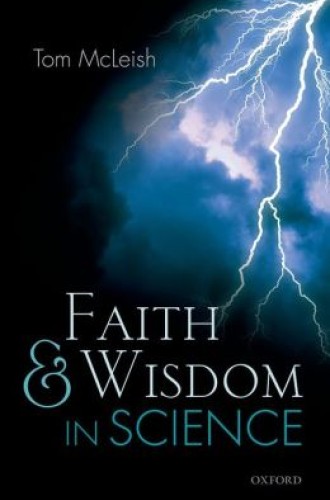Faith and Wisdom in Science, by Tom McLeish
In 1959, C. P. Snow delivered a lecture called “The Two Cultures and the Scientific Revolution.” The two cultures are the humanities and the sciences, and Snow claimed that it is a cultural problem that few people are literate in both. By the end of the 20th century, however, a new class of public intellectual had emerged, dubbed the “third culture” by John Brockman in his 1995 book of that title. These were top-shelf scientists, such as Stephen Hawking, Richard Dawkins, and Steven Pinker, who learned to communicate insights from their disciplines to the general public in ways that connected with the big existential questions about who we are and what our place in the universe is. With few exceptions these writers endorsed a naturalistic view of the world, according to which all the questions that matter can be answered by the sciences.
Other scientists recognized the limitations of science and did not pretend that it could answer all the questions we put to the universe. Ian Barbour, Arthur Peacocke, and John Polkinghorne did not achieve the fame of the third-culture writers, but they created the academic discipline of science and theology. The next generation of scientists who have tried their hands at theology, whether professionally or more popularly, includes Alister McGrath, Celia Deane-Drummond, and Francis Collins.
What drives scientists to leave the laboratory and address the kinds of questions traditionally reserved for the humanities? This past summer I attended the annual meeting of the American Scientific Affiliation, the largest professional group of Christians in the sciences, and most of the presentations were theological or philosophical in nature. To be sure, they drew on the results and theories of the sciences, but primarily they aimed at interpreting scripture, examining presuppositions, or doing other kinds of philosophical work. Why would these scientists—most with no formal training in theology or philosophy—spend their research time and conference funds working outside their fields? To my mind, they are following the strategy of Augustine and Anselm: faith seeking understanding. They are committed Christians, and they are working out their faith in the context of modern science.




